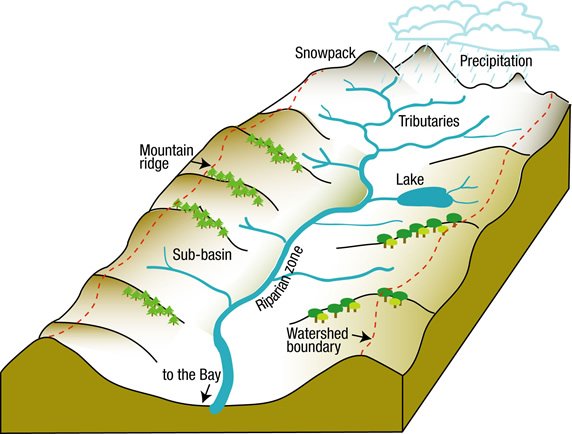Watershed-Based Plans in New England
What is a Watershed?
A watershed is the area of land that contributes runoff to a lake, river, stream, wetland, estuary, or bay. All the water that falls within the borders of a watershed eventually makes its way to a single drainage point.

Credit: The Watershed Project
What is a Watershed-Based Plan?
Watershed-based plans (WBPs) are a means to define, resolve and prevent existing or future water quality problems that result from both nonpoint source and point source* pollution. Although the primary purpose of a plan is to clean up waters listed as impaired (polluted) under section 303(d) of the Clean Water Act, watershed plans are intended both to provide an analytic framework for collective community action to restore water quality in impaired waters and to protect water quality in other waters adversely affected or threatened by pollution.
Watershed plans are a good way for citizens to get involved in cleaning up their local polluted waters as plan developers reach out to interested stakeholders.
Region 1 Watershed-Based Plans by State
EPA Guidance for Watershed Based Plans
EPA Guidance Document (2013): Appendix C, pp. 63-67 (pdf)
Instructions for Developing Watershed-Based Plans
A QUICK GUIDE to Developing Watershed Plans to Restore and Protect Our Waters (May 2013) (pdf)
* A point source is a discrete conveyance, such as a pipe. Large cities with high population densities are required to clean up stormwater pollution through the Municipal Separate Storm Sewer System (MS4) program, although the same type of pollution outside the boundaries of those high-density areas is not regulated and is considered a nonpoint source. The boundaries of these high-density "urbanized areas" are defined by the most recent U.S. census.
